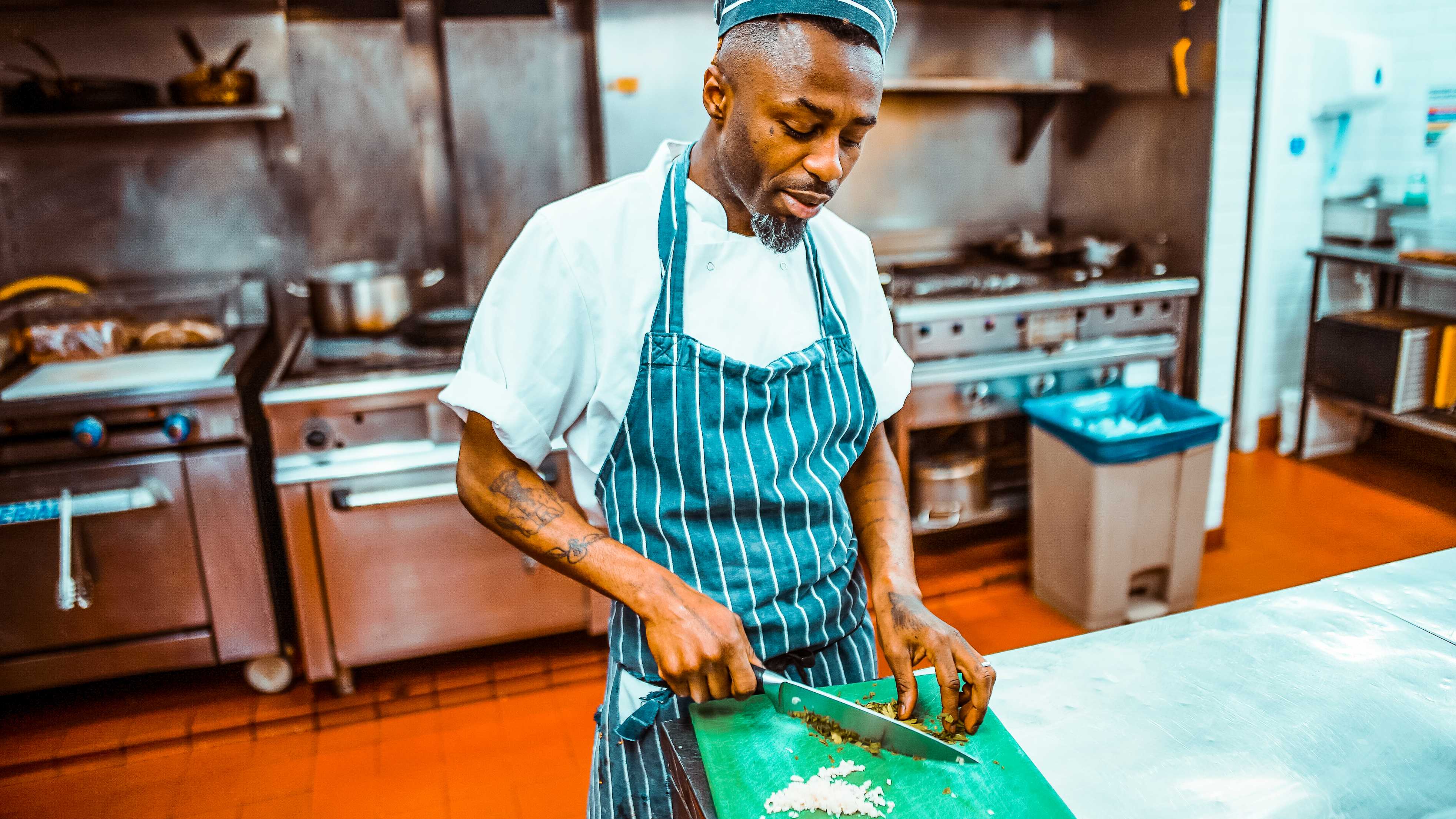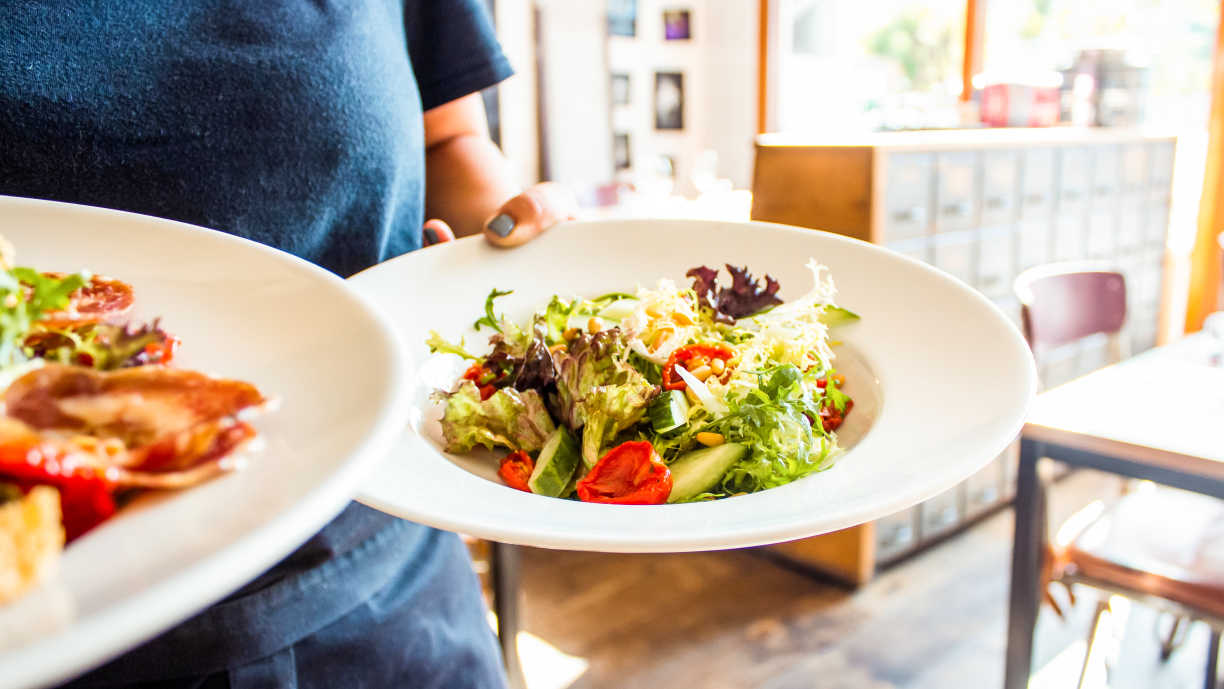5 Basic Kitchen Safety Tips

The most important part of working in a restaurant is taking proper safety precautions. You can be a master of mixing flavors, able to julienne an entire sack of potatoes in under a minute but if you’re hurting yourself or others you won’t be welcome in the kitchen. Before you upgrade your kitchen Pro skills you’ll want to be certain you’ve memorized all the safety know-how forward and back.
1. Show up in proper attire
Before you take a single step into the back of the house you need to be sure you’re dressed properly. The kitchen you’re working in will likely have a dress code, but you should generally wear clothes that aren’t too billowy to avoid tripping or getting snagged. Always wear non-slip shoes and consider avoiding laces, which can be a tripping hazard. Consider removing jewelry and accessories. Some accessories, like glasses, are necessary but it may be worth considering contact lenses, straps, or goggles if you’re worried about losing your specs in a pot of soup.
2. Always be attentive
Once you’re in the kitchen there’s nothing more important than maintaining maximum attentiveness at all times, or “total kitchen awareness” as it’s often known. That means looking out for hazards and addressing them as soon as you can. For example, if you notice a container lid on the floor, take a moment to pick it up so no one else will slip on it. Of course, that total awareness includes your actions as well. They say a watched pot never boils, but an unwatched pot can catch fire if you aren’t careful.
3. Maintain constant communication
One person can’t keep track of every potential hazard at all times. That’s why a major aspect of “total kitchen awareness” is keeping constant communication between everyone working in that kitchen. As focused as you may be on your tasks, you’re part of a team and the only way for everyone to be safe is by keeping each other posted on where you are and what you’re doing. That’s why you need to familiarize yourself with kitchen lingo like “corner” and “behind” though sometimes speaking plainly can be necessary as well.
4. Hurry but don’t rush
Kitchens get very busy, very quickly. You’re often going to have to maintain a speedy pace to tackle every ticket coming your way. That being said, quick should never become careless. If you start rushing through tasks you’re more likely to drop something, slip, or cut yourself or someone else. Falling behind on the lunch rush sucks but sending someone to the hospital sucks so much worse. Remaining calm under pressure is a skill that needs to be developed just like any other.
5) Familiarize yourself with every item in the kitchen
You should try to have a general familiarity with the safety precautions associated with all of the typical items you’d expect to find in a kitchen. Keep in mind that some safety tips may not be particularly intuitive. For example, a dull knife can be more dangerous than a sharp one, since it can slip while you’re using it. Of course, it’s always possible you’ll encounter a situation you aren’t familiar with, so don’t be afraid to speak up and ask questions when safety is at stake.
